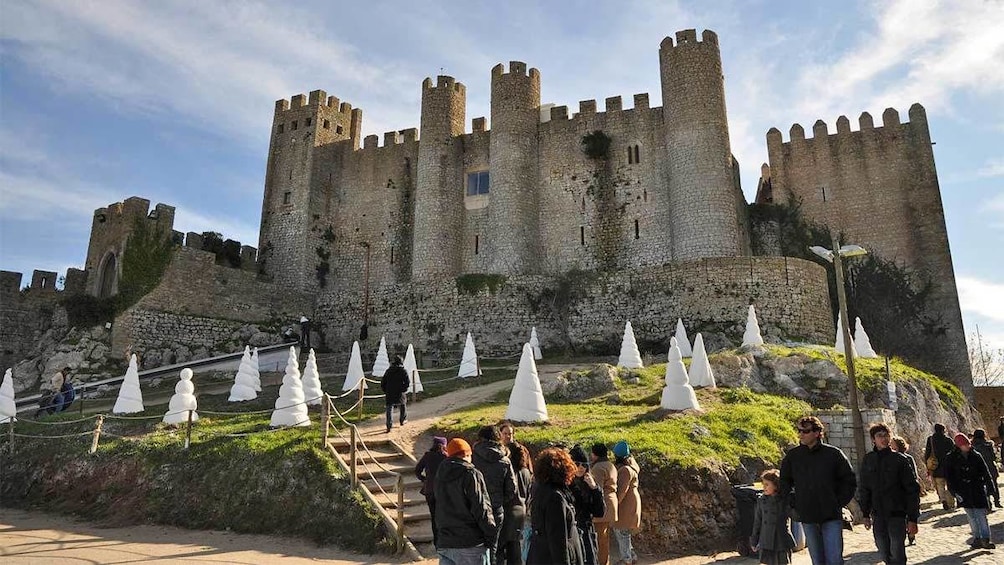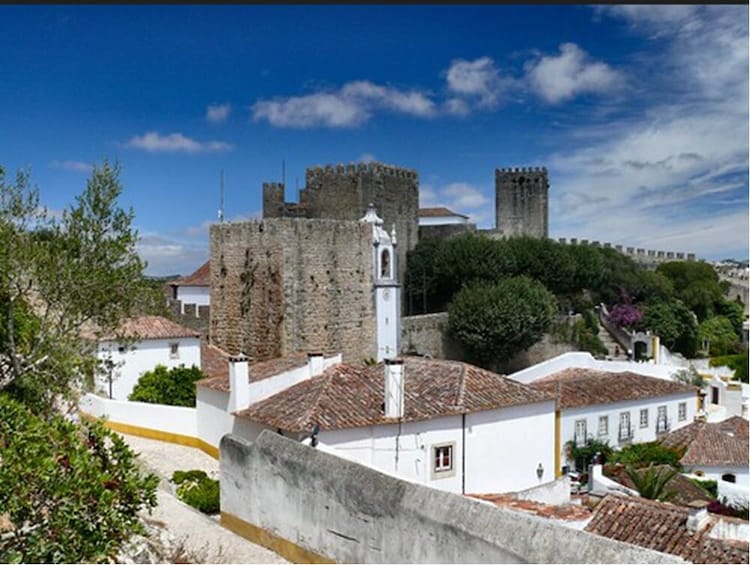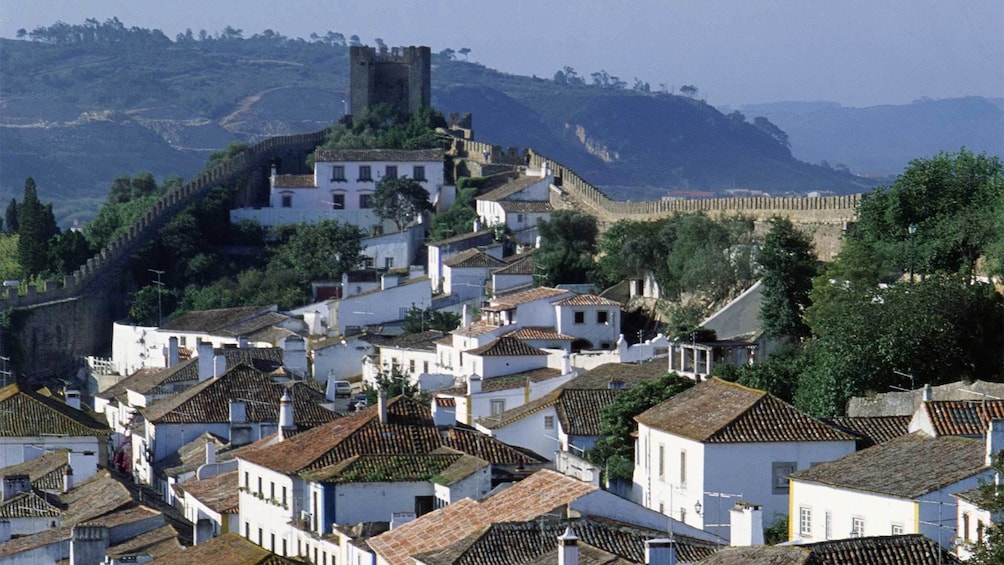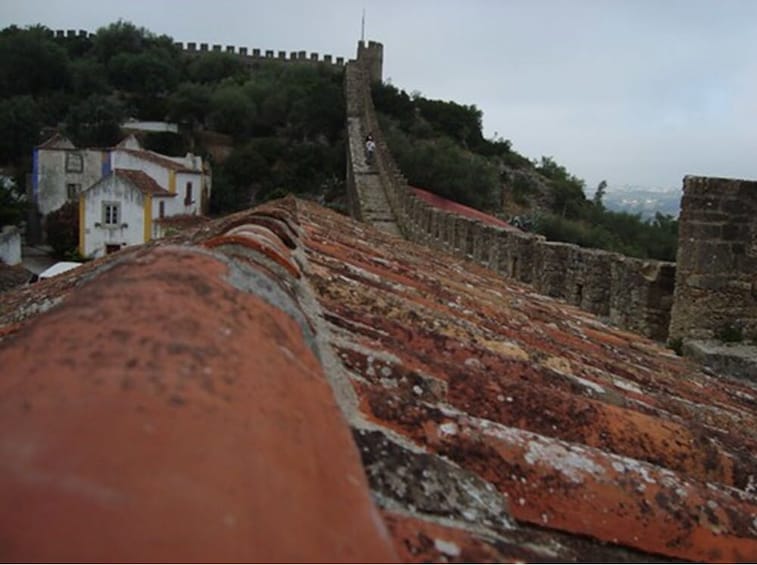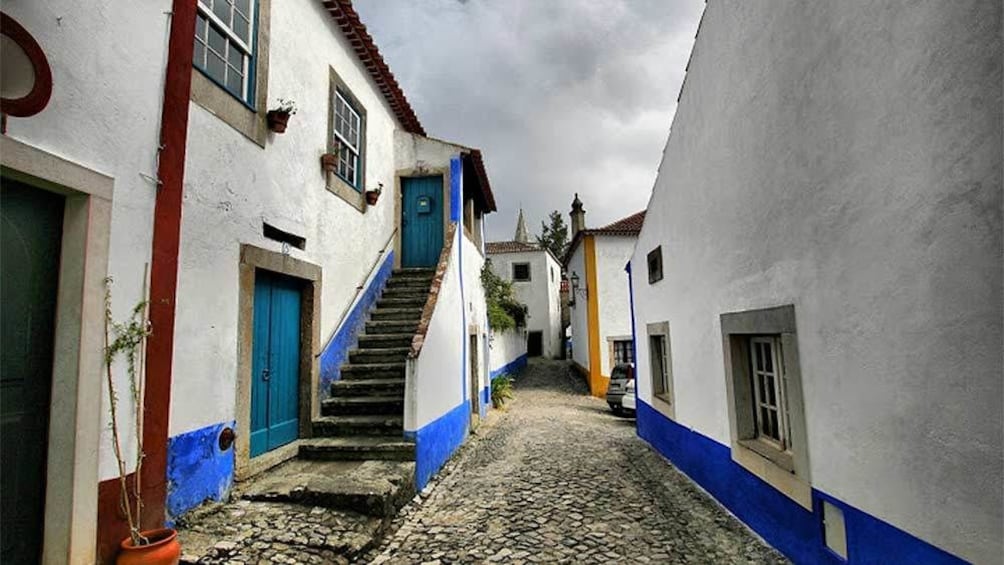Get to know Óbidos at your own pace with this DIY tour, designed especially for travellers who want total autonomy to discover the wonders of Portugal. Your interactive guide acts as the perfect travelling companion, enabling you to enjoy each destination just the way you want.
The visit begins in Lisbon, from where we head towards Alcobaça, a city home to the Monastery of Alcobaça, also known as the Royal Monastery of Santa Maria de Alcobaça, which was designated as a UNESCO World Heritage site in 1989.
The construction of the Monastery began in 1178, by order of King D. Afonso Henriques, and the monks occupies it in 1223. It is one of the largest and best-preerved complexes of the Cistercian Order. King D. Pedro chose the church of the monastery as the burial site for himself and his beloved, Inês de Castro, whose impressive tombs can be visited.
We will then proceed to the village of Óbidos, enjoying some of the most beautiful landscapes in western Portugal.
In Óbidos, accompanied by an audioguide that will provide detailed information about each point of interest, visitors can explore the churches, see the walls and the castle, or stroll through the streets lined with colourful houses adorned with flowers.
The village of Óbidos was probably founded by the Celts in 308 BC. Recent studies have led experts to believe that Óbidos was part of the anciente Roman city of Eburobrittium. The village was later occupied by the barbarians and then by the Moors.
The first King of Portugal, Afonso Henriques, conquered this village from the Moors.
In the 18th century, Óbidos still held its noble status as a place for the royal summer holidays. King John V stayed in Óbidos for eight years on the advice of his doctors to go swimming in Caldas da Rainha to treat his arthritis and obesity.
On arrival in this charming village some of the places of interest are as follows:
Town Gate or Our Lady of Sorrow, patron saint of Óbidos, St. Peter’s Church, Pousada of Óbidos:
